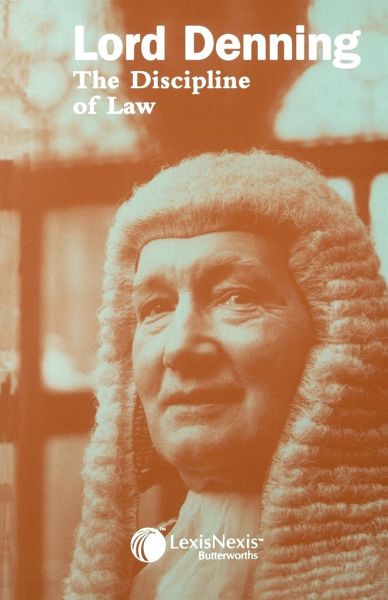
The Discipline of Law
Versandkostenfrei!
Versandfertig in 1-2 Wochen
63,99 €
inkl. MwSt.

PAYBACK Punkte
32 °P sammeln!
The underlying theme of this book is that the principles of law laid down by the Judges in the 19th century--however suited to social conditions of the time--are not suited to the social necessities and social opinion of the 20th century. They should be moulded and shaped to meet the needs and opinions of today. The Discipline of Law is a fascinating account of Lord Denning's personal contribution to the changing face of the law in this century.














